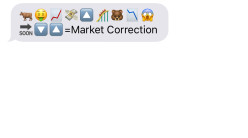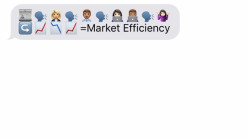1. You get an e-mail about open enrolment for healthcare
2. You choose HSA
3. Which has you give money to an account
4. Pre Tax
5. This account is now invested
6. You get a debit card
7. With your HSA money that you can use
8. To buy sunglasses, glasses and qualifying medical expenses
9. Your mind is blown
Lets piece this together, you are looking at your benefits and choose a healthcare plan call HSA, now you realize that this has you give money to an account pre-tax. Now you choose some investments for your money to grow and soon you receive a debit card in the mail. This debit card has your HSA money that you can use! #moneyface You can use this money to buy qualifying sunglasses, glasses, and medical expenses, your mind is blown.
What is an HSA?
HSA stands for Health Savings Account and is a high deductible insurance plan. Now you may have seen this come up as an option when you are choosing your benefits for your job but how does it work?
Well HSA is like any health insurance plan but with some tax benefits as well as the ability to get a debit card that you can use to make purchases that qualify. What you do is each paycheck you contribute money to this account pre-tax just like your 401K and then you choose investments like mutual funds for your account. This money is yours and rolls over every year and is not taxable as long as you use it for qualifying expenses.
Rules (As of 2017)
• Max $3,400 for individuals/year
• Out of pocket minimum is $1,300 and max is $6,550 for individuals
• Max $6,750 for families/year
• Out of pocket minimum is $2,600 and max is $13,100 for families
• Eligible expenses are deductibles, copays, coinsurance, and other medical expenses not covered by your plan
• Insurance premiums are not payable with HSA
• Qualifying glasses such as Warby Parker accept HSA accounts.
Tax Benefits
• Just like your 401K, you are putting money away pre-tax, so if you contribute $2,000 to your HSA account for the year, then your AGI will go down by $2,000 sometimes changing your tax bracket.
• All growth invested is also considered tax free so not capital gains
• The money is also pulled out tax-free if used for approved expenses
HSA For You?
So here is the real question is it right for you? Well it depends on your lifestyle and your medical needs it is wise to calculate
1. Are you in a high tax bracket?
2. Can you afford a high deductible?
3. Do you purchase a lot of qualified medical expenses?
4. Can you afford monthly to have less in your paycheck?
5. Does your current primary care doctor accept the HSA plan?
These are all wise things to consider and work with a professional to understand more to see if the fit is right for you.
Regardless now you know what an HSA is when you open up your benefits and all the tax benefits that come along with it!












